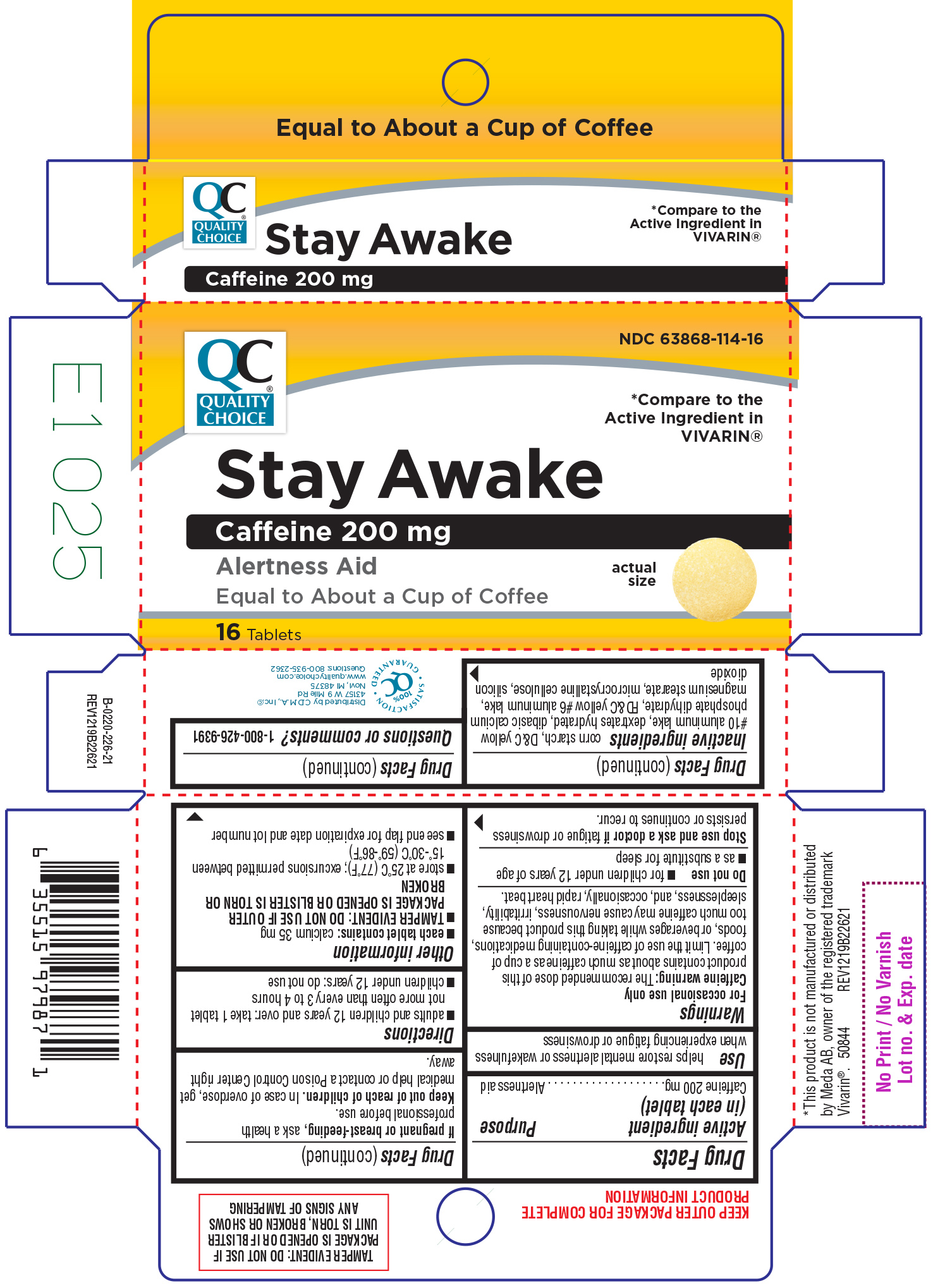![Stay Awake (Caffeine) Tablet [Nash-finch Company] Stay Awake (Caffeine) Tablet [Nash-finch Company]](/wp-content/themes/bootstrap/assets/img/loading2.gif)
THE USUAL DOSAGE AND FREQUENCY OF ADMINISTRATION OF DOXYCYCLINE DIFFERS FROM THAT OF THE OTHER TETRACYCLINES. EXCEEDING THE RECOMMENDED DOSAGE MAY RESULT IN AN INCREASED INCIDENCE OF SIDE EFFECTS.
Adults: The usual dose of oral doxycycline is 200 mg on the first day of treatment (administered 100 mg every 12 hours or 50 mg every 6 hours) followed by a maintenance dose of 100 mg/day. The maintenance dose may be administered as a single dose or as 50 mg every 12 hours. In the management of more severe infections (particularly chronic infections of the urinary tract), 100 mg every 12 hours is recommended.
For pediatric patients above eight years of age: The recommended dosage schedule for pediatric patients weighing 100 pounds or less is 2 mg/lb of body weight divided into two doses on the first day of treatment, followed by 1 mg/lb of body weight given as a single daily dose or divided into two doses, on subsequent days. For more severe infections up to 2 mg/lb of body weight may be used. For pediatric patients over 100 pounds the usual adult dose should be used.
Uncomplicated gonococcal infections in adults (except anorectal infections in men): 100 mg, by mouth, twice a day for 7 days. As an alternate single visit dose, administer 300 mg stat followed in one hour by a second 300 mg dose.
Acute epididymo-orchitis caused by N. gonorrhoeae: 100 mg, by mouth, twice a day for at least 10 days.
Primary and secondary syphilis: 300 mg a day in divided doses for at least 10 days.
Uncomplicated urethral, endocervical, or rectal infection in adults caused by Chlamydia trachomatis: 100 mg, by mouth, twice a day for at least 7 days.
Nongonococcal urethritis caused by C. trachomatis and U. urealyticum: 100 mg, by mouth, twice a day for at least 7 days.
Acute epididymo-orchitis caused by C. trachomatis: 100 mg, by mouth, twice a day for at least 10 days.
Inhalational anthrax (post-exposure): ADULTS: 100 mg of doxycycline, by mouth, twice a day for 60 days. CHILDREN: weighing less than 100 pounds (45 kg); 1 mg/lb (2.2 mg/kg) of body weight, by mouth, twice a day for 60 days. Children weighing 100 pounds or more should receive the adult dose.
When used in streptococcal infections, therapy should be continued for 10 days.
Administration of adequate amounts of fluid along with capsule and tablet forms of drugs in the tetracycline class is recommended to wash down the drugs and reduce the risk of esophageal irritation and ulceration. (See ADVERSE REACTIONS.) If gastric irritation occurs, doxycycline may be given with food. Ingestion of a high fat meal has been shown to delay the time to peak plasma concentrations by an average of one hour and 20 minutes. However, in the same study, food enhanced the average peak concentration by 7.5% and the area under the curve by 5.7%.



![Stay Awake (Caffeine) Tablet [Greenbrier International, Inc.]](http://dailymed.nlm.nih.gov/dailymed/image.cfm?setid=43803d36-5963-4859-bda4-1288851c712c&name=assured-44-226-1.jpg)
![Stay Awake (Caffeine) Tablet [Winco Foods, Llc]](http://dailymed.nlm.nih.gov/dailymed/image.cfm?setid=e47c6a09-ba26-4ebf-b6fb-3cf7ab04dc35&name=winco-44-226-1.jpg)
![Stay Awake (Caffeine) Tablet [Chain Drug Marketing Association]](http://dailymed.nlm.nih.gov/dailymed/image.cfm?setid=71d8293b-6bf2-4dd6-97c1-8f8e0b27758a&name=F102001QCH_R1_DF062106.jpg)
![Stay Awake (Caffeine) Tablet [Great Lakes Wholesale, Marketing, & Sales, Inc.]](http://dailymed.nlm.nih.gov/dailymed/image.cfm?setid=91b48b79-a520-42a0-a89a-3309e36c382f&name=healthcare-44-226-1.jpg)
![Stay Awake (Caffeine) Tablet [Kroger Company]](http://dailymed.nlm.nih.gov/dailymed/image.cfm?setid=ecf42b47-e36d-4140-8d85-075d28a11b0c&name=1b69d25e-1206-416c-a99b-96e00c1b9f2b-01.jpg)
![Stay Awake (Caffeine) Tablet [Hyvee Inc]](http://dailymed.nlm.nih.gov/dailymed/image.cfm?setid=e6a27d4f-ba7d-4fac-b9c0-060b867147bb&name=e6a27d4f-ba7d-4fac-b9c0-060b867147bb-01.jpg)
![Stay Awake (Caffeine) Tablet [H E B]](http://dailymed.nlm.nih.gov/dailymed/image.cfm?setid=28d25382-e40f-479d-a6de-ce68bec9cc26&name=28d25382-e40f-479d-a6de-ce68bec9cc26-01.jpg)
![Stay Awake (Caffeine) Tablet [Rite Aid]](http://dailymed.nlm.nih.gov/dailymed/image.cfm?setid=108dd7f0-7e20-435e-961d-03e884a5b5aa&name=stay-awake-1.jpg)
![Stay Awake (Caffeine) Tablet [Publix Super Markets Inc]](http://dailymed.nlm.nih.gov/dailymed/image.cfm?setid=885c6897-20c1-4ce1-9b4b-ff692f6f0e4b&name=885c6897-20c1-4ce1-9b4b-ff692f6f0e4b-01.jpg)
![Stay Awake (Caffeine) Tablet [Stephen L. Lafrance Pharmacy, Inc.]](https://www.recallguide.org/wp-content/themes/bootstrap/assets/img/drug-image-placeholder.jpg)
![Stay Awake (Caffeine) Tablet [Western Family Foods, Inc.]](http://dailymed.nlm.nih.gov/dailymed/image.cfm?setid=cfc6733f-cdc4-4873-99b8-baec53e899b1&name=caffeine-200-mg-1.jpg)
![Stay Awake (Caffeine) Tablet [Freds Inc]](http://dailymed.nlm.nih.gov/dailymed/image.cfm?setid=29af389e-044b-4415-a81e-5bbe63c21f3f&name=caffeine-200-mg-1.jpg)
![Stay Awake (Caffeine) Tablet [Army And Air Force Exchange Service]](http://dailymed.nlm.nih.gov/dailymed/image.cfm?setid=a2087b57-e6b8-4b3c-b861-6f3b5ce46e8b&name=3197e39e-a82f-4819-a7c4-db8962b1f92c-13.jpg)
![Stay Awake (Caffeine) Tablet [Wal-mart Stores Inc]](http://dailymed.nlm.nih.gov/dailymed/image.cfm?setid=5f5b65a2-4db7-4c8e-a954-95611a087217&name=stay-awake-1.jpg)
![Stay Awake (Caffeine) Tablet [Kinray Inc.]](http://dailymed.nlm.nih.gov/dailymed/image.cfm?setid=4633e0a6-acfc-4c29-b4e2-2bcf91b85d9d&name=stay-awake-01.jpg)
![Stay Awake (Caffeine) Tablet [Salado Sales, Inc.]](http://dailymed.nlm.nih.gov/dailymed/image.cfm?setid=6640cc61-edee-4808-a26f-cbc2c0b7af86&name=lopressor-04.jpg)
![Stay Awake (Caffeine) Tablet [Walgreen Co.]](http://dailymed.nlm.nih.gov/dailymed/image.cfm?setid=4a9ffc3c-3e47-4fa8-b201-c4233ccc109e&name=LIQUIDO2.jpg)
![Stay Awake (Caffeine) Tablet [Supervalu Inc.]](http://dailymed.nlm.nih.gov/dailymed/image.cfm?setid=1357eade-f1d3-4df2-8a8a-4c318aab1141&name=equaline-44-344-1.jpg)
![Stay Awake (Caffeine) Tablet [Western Family Foods, Inc.]](http://dailymed.nlm.nih.gov/dailymed/image.cfm?setid=99ca2ffa-a0d5-40f6-a321-8a386fb3a5a7&name=caffeine-200-mg-tablet-1.jpg)
![Stay Awake (Caffeine) Tablet [Freds Inc]](http://dailymed.nlm.nih.gov/dailymed/image.cfm?setid=a6eaa877-1d0d-4920-915a-de3e678041fc&name=caffine-200-mg-tablet-1.jpg)
![Stay Awake (Caffeine) Tablet [Best Choice (Valu Merchandisers Company)]](http://dailymed.nlm.nih.gov/dailymed/image.cfm?setid=453fc3be-8500-44da-afa3-f292e39edb0d&name=caffeine-200mg-yellow-tablet-1.jpg)
![Stay Awake (Caffeine) Tablet [National Distribution Network (Smart Choice)]](http://dailymed.nlm.nih.gov/dailymed/image.cfm?setid=758bc26a-1a0a-4771-9ecf-f8029b77b263&name=smart-choice-caffeine-200-mg-yellow-tablet-1.jpg)